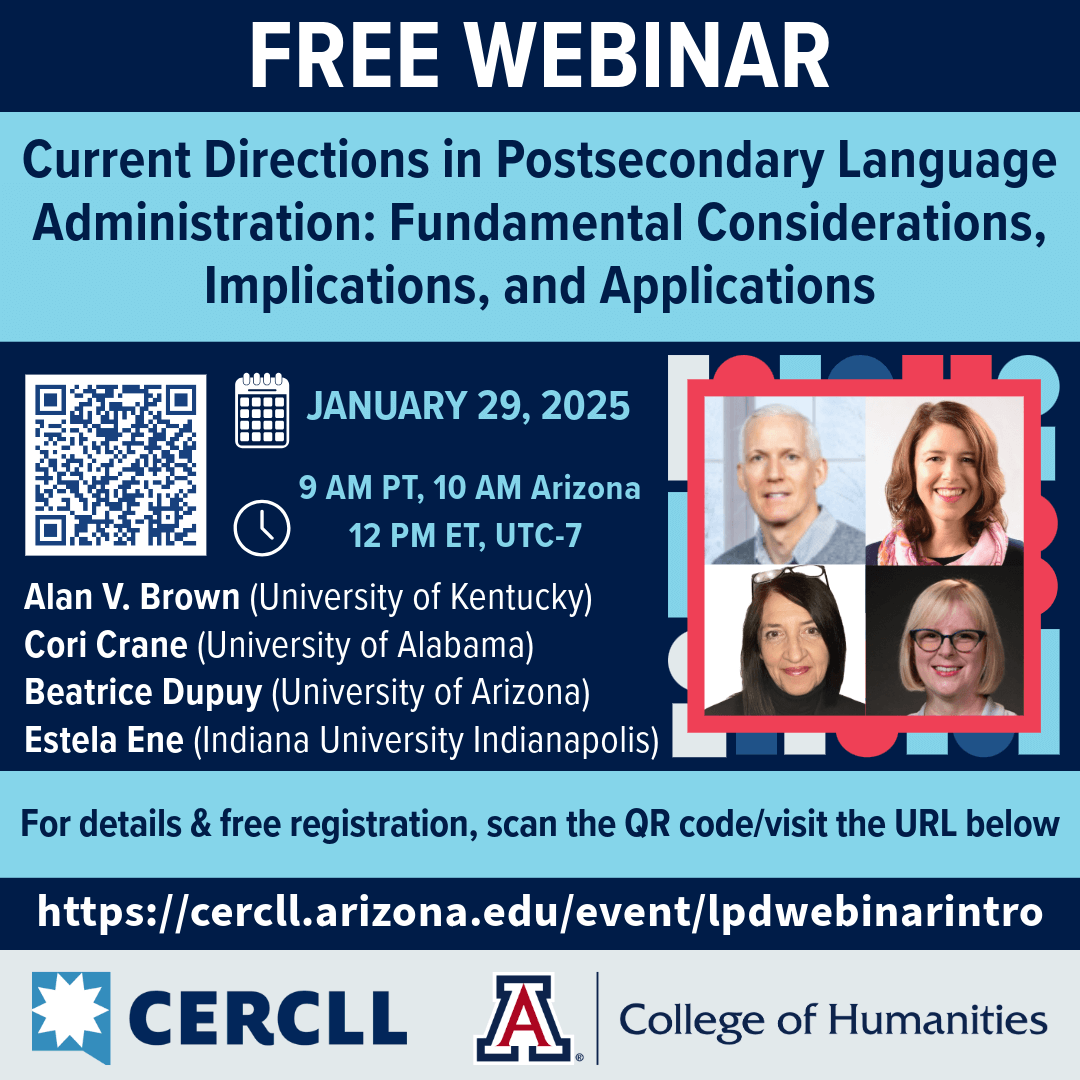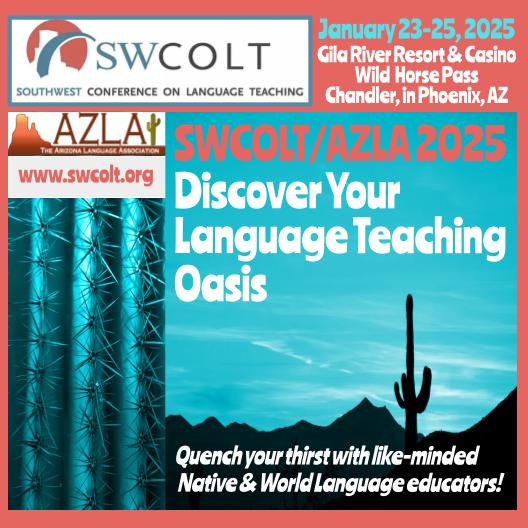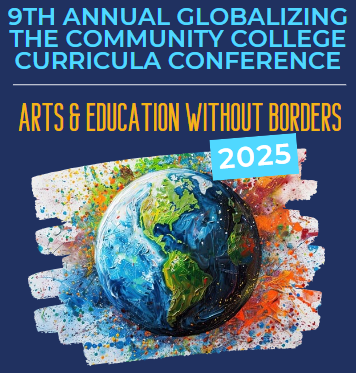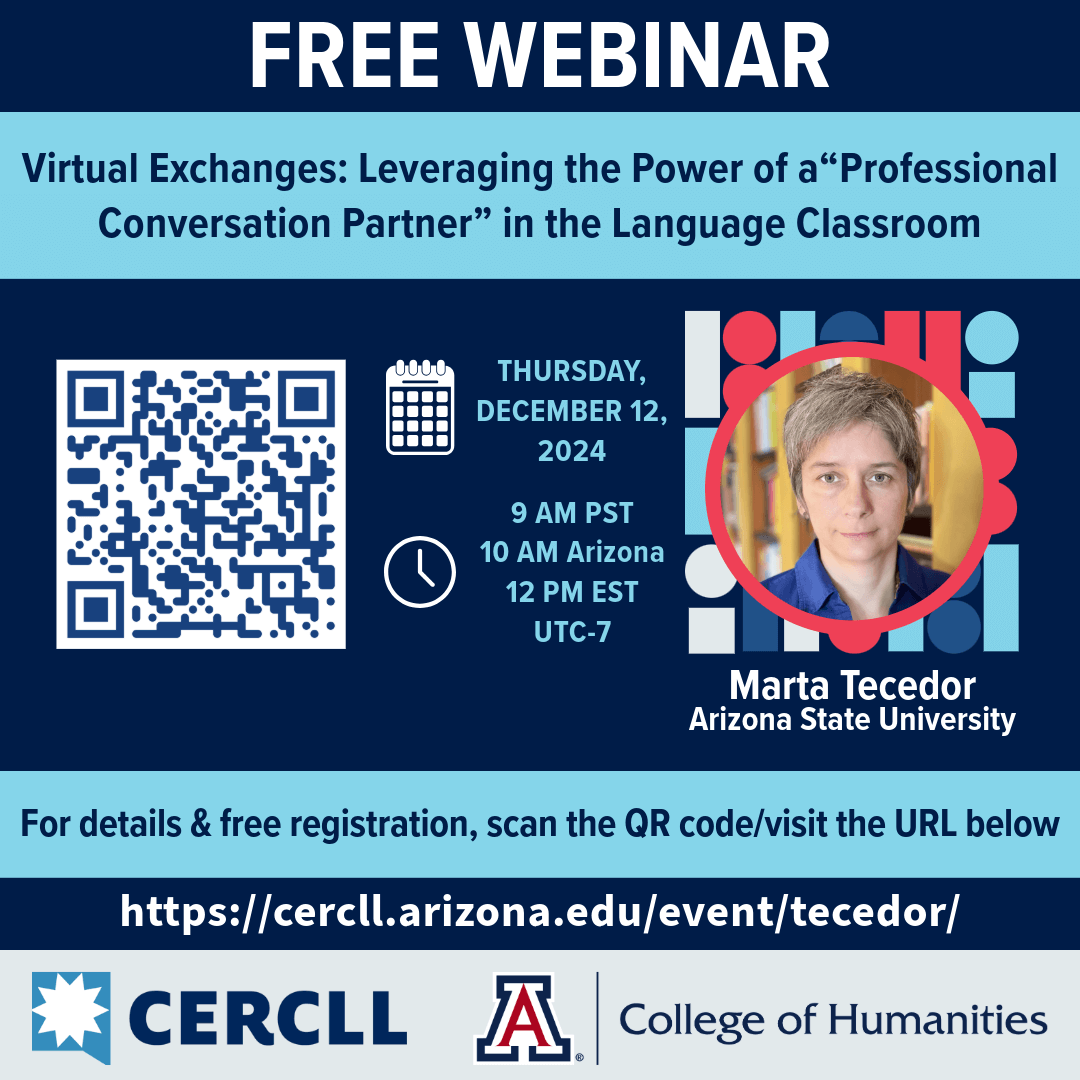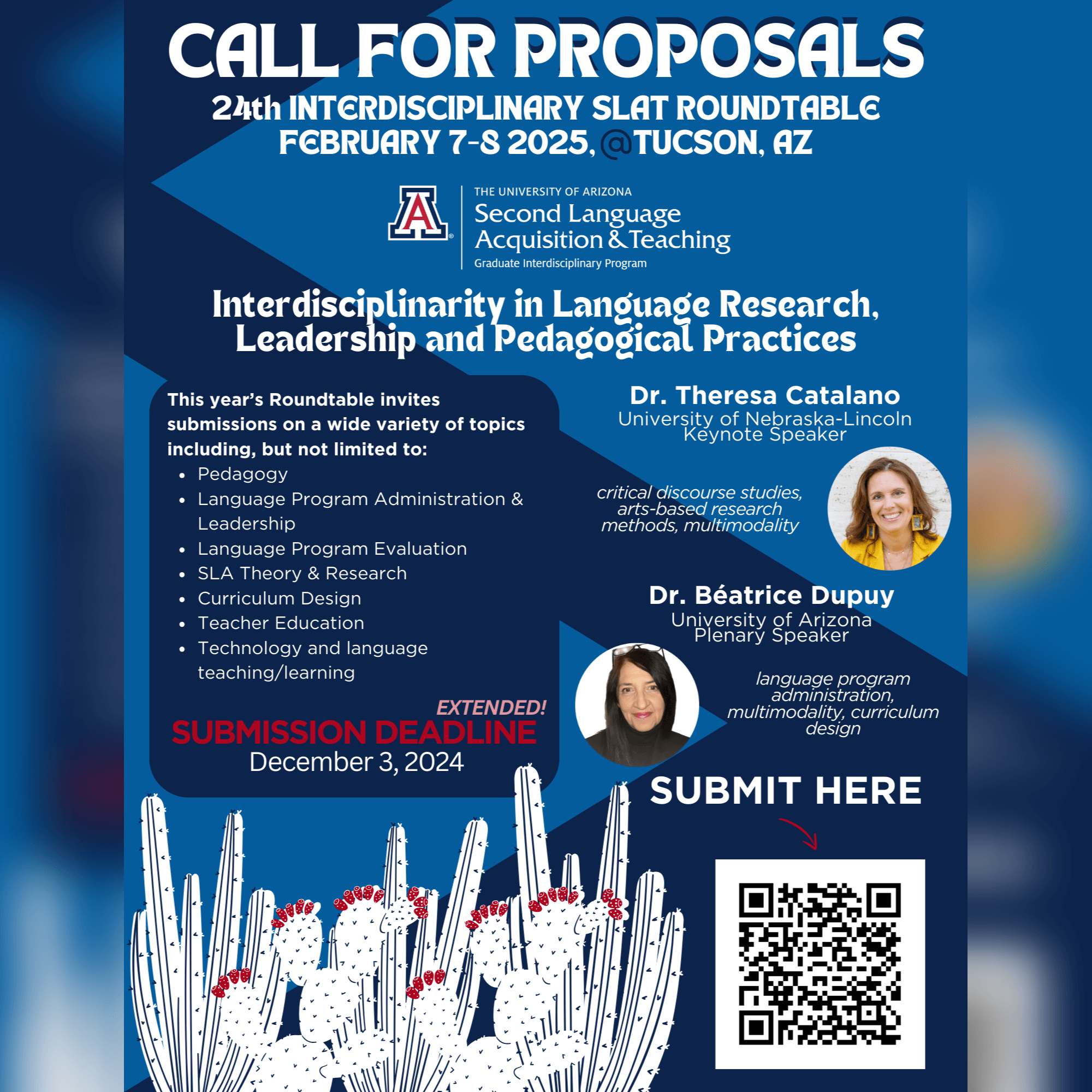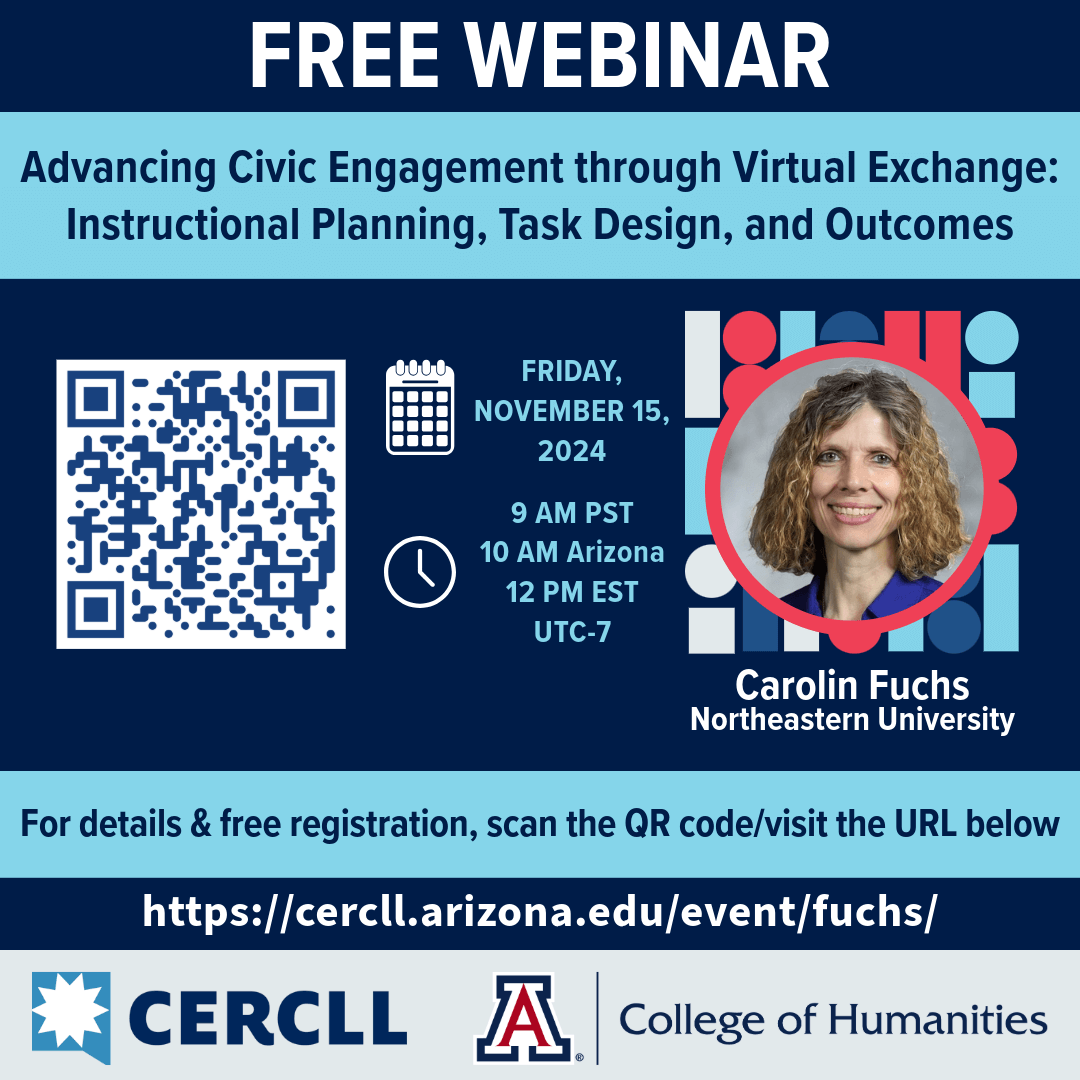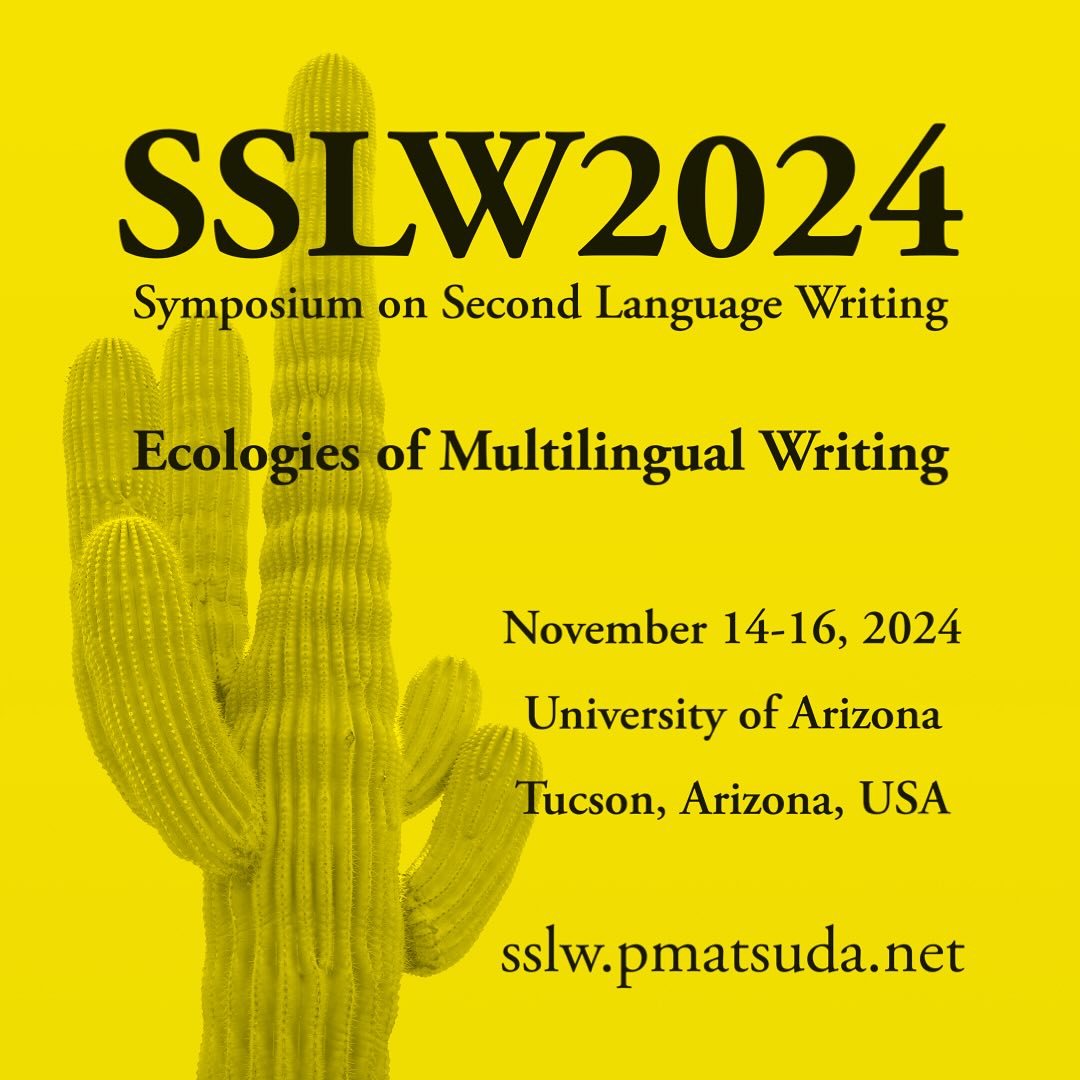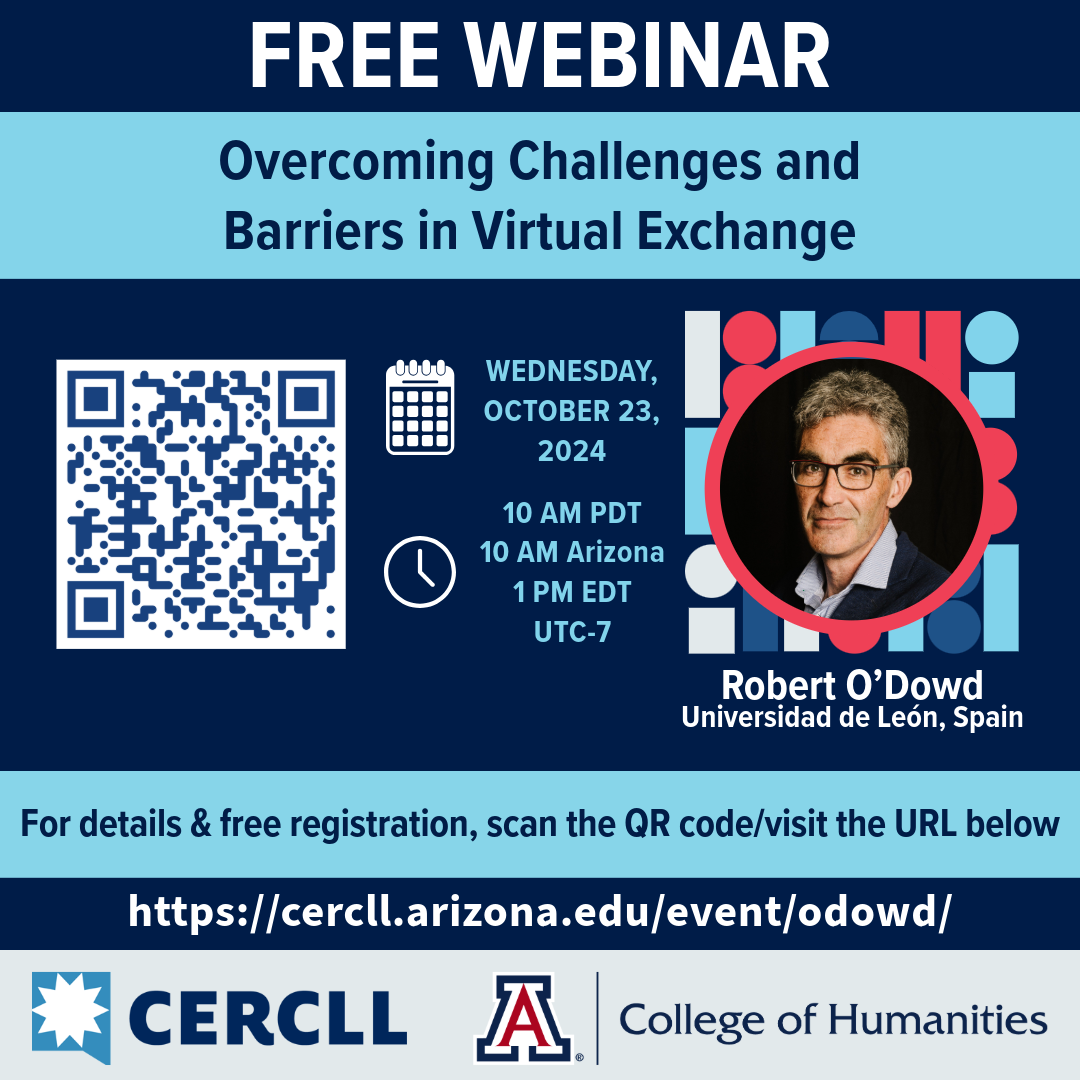- CERCLL Summer Workshop Series
- Intercultural Competence Conferences
- Digital Literacies in and beyond the L2 Classroom: A Hybrid Symposium on Research and Practice (October 2014)
- Multilingual, 2.0? (April 13-15, 2012)
General Professional Development and Other Events
Lectures and Cultural Events
CERCLL sponsors and co-sponsors numerous public events throughout the academic year. If you would like to receive announcements about these and other language-related opportunities, join CERCLL’s mailing list here.
CERCLL’s NSF Grant and Related Events
A UA’s Linguistics symposium was about the National Science Foundation grant from the Cyberlearning: Transforming Education program that CERCLL received in 2013. Jon Reinhardt spoke about the digital materials produced by the project in “Augmented Reality Mobile Games for Language Learning and Revitalization”. Access the presentation here. (A closed symposium for Native American educators took place in Fall 2013 and was followed by a workshop on the Fort Mohave reservation on the CA/AZ border in February, 2014, while CERCLL’s June 7th, 2014, workshop also covered some of the topics of this project; there was a presentation in American Indian Language Development Institute (AILDI)’s summer series in both 2014 and 2015 as well.)
Summer Workshop Series and the LATeS Symposium
CERCLL hosts professional development workshops each summer, as well as an annual language teacher symposium (LATeS).
Fall 2013 Workshops
-
The first of two workshops presented with the Arabic Flagship program at the University of Arizona took place on December 14, 2013: Innovative Technology in the Language Classroom
-
CERCLL began a relationship with the Confucius Institute at the University of Arizona that will bring professional development opportunities to Chinese teachers. The first workshop took place on December 7, 2013: Training Chinese Teachers in Communicative Language Teaching, presented by University of Arizona Assistant Professor Wenhao Diao. See CERCLL’s blog entry about this workshop.
Symposium on Indigenous Knowledge and Digital Literacies
In July 2013, CERCLL was awarded funding from the National Science Foundation through its Cyberlearning: Transforming Education program. The symposium and workshops were conceived as an extension to CERCLL’s Games to Teach Project, bringing digital gaming to a new audience for CERCLL–the Native American community. It is co-led by one of the Games to Teach project directors, Dr. Jonathon Reinhardt, and by Dr. Susan Penfield, who was previously CERCLL’s Research Coordinator. CERCLL is partnering with the University of Arizona’s American Indian Language Development Institute (AILDI) for the first time, and bringing CERCLL’s activities to underserved communities through this program. See CERCLL’s blog entry on the symposium.
U.S. Department of Education Annual Bus Tour
CERCLL was included in the U.S. Department of Education’s 2013 bus tour which was intended to highlight early learning and “teachers as leaders”, among other things. Dr. Brenda Dann-Messier, Assistant Secretary for Vocational and Adult Education and Acting Assistant Secretary of Education, and Dr. Sharon Lee Miller, Director of the Division of Academic and Technical Education, took part in a roundtable at the University of Arizona on September 11, 2013. See CERCLL’s blog entries on the topic.


